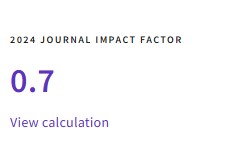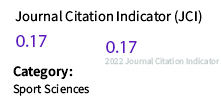Effectiveness of the development of self-control through Physical Education
DOI:
https://doi.org/10.24310/riccafd.2021.v10i2.11160Keywords:
sports, educational intervention program, behavior, attitudesAbstract
This research examined the effects of the Delphi Program on Education in Values through Sport, on self-control behaviors in fifth and sixth graders of Compulsory Primary Education. The exhibition consisted of students from the Agustín Rodríguez Sahagún College of the Autonomous Community of Madrid with an age of between 11 and 13 years old. It was passed in CACIA questionnaire that measures personal self-control across five dimensions. The experimental group was applied the Educational Intervention program in 20 sessions of initiation to futsal, each session was one hour long. Significant results were found in the experimental group, in the dimension personal feedback and criterial self-control. The thought that sports practice itself develops morality and character, which lies in the formation of the origin of modern sport and the Olympic Idearium, is far from evident. This does not mean that the potential for development through sport does not exist, but that for sports practice to have pedagogical achievements, there must be a didactic planning that structures an entire educational strategy, which allows the personal and social development of the discs. That is, psychological and social development can be obtained, through educational proposals such as that presented in this study, as long as teachers or coaches put into play adaptations for the personal and social development of the participants.
Downloads
Metrics
References
Burgueño R, Cueto- Martin B, Morales-Ortiz E, Medina-Casaubón J. Influ-encia de la educación deportiva sobre la respuesta motivacional del alum-nado de bachillerato: Una perspectiva de género. Retos: Nuevas Tendenciade la Educación Física, Deporte y Recreación. 2020; 37: 546-555. https://tinyurl.com/yxkugexo
Bandura A, Caprara G, Barbaranelli C, Pastorelli C, Regalia, C. Sociocog-nitive Self-regulatory mechanisms governing trassgressive behaviur. Jour-nal of Personality anda Social Psychology. 2001; 80 (1):125-135. https://doi.org/10.1037/0022-3514.80.1.125
Capafon A, y Silva F. Cuestionario de autocontrol infantil y adolescente.(CACIA). TEA: Madrid. https://tinyurl.com/yyealapn, 1995.
Cecchini JA, Losa JF, González C, Arruza JA. Repercusiones del ProgramaDelfos de educación en valores a través del deporte en jóvenes escolares.Effect of the Delfos Program of Education in Values Thrugh Sport in Studen-tes. Revista Educación. 2008; 346: 167–186. https://tinyurl.com/y5m67rpc
Cecchini, J, Fernández J., González C, Arruza J. LOS PROCESOS DETRANSFERENCIA EN EL PROGRAMA DELFOS1. Revista Española de EducaciónFísica. 2008; 8: 83–98. https://tinyurl.com/y38bqfmj
Cerrada JA., Navarro B, Abad MT, Giménez FJ. Una revisión sistemáticasobre el desarrollo de la deportividad en chicos y chicas en clase escolar.Journal of Sport and Health Research. 2008;12(3):193-210. https://pre-view.tinyurl.com/y5anzheh
Contreras O, De la Torre E, Velázquez R. Iniciación deportiva. Madrid:Síntesis. https://tinyurl.com/y3328koc. 2001.
Cohen J. The Earth Is Round (p>.05). American Psychologist. 1994;49(12):997-1003. https://doi.org/10.1037/0003-066X.49.12.997.
Danish SJ, Nellen VC. (1997). New roles for sport psychologist: Teachinglife skills through sport to at-risk youth. Quest.1997;49:100-113. https://doi.org/10.1080/00336297.1997.10484226
Danish SJ, Nellen VY Owens S. Communuty-based programs for ado-lescent: Using sport to teach life skills. En J. L. Van Raalte y B. W. Brewe(comps.), Exploring sport and exercise psychology (205-228). Washington,D. C.: American Psychological Association. 1996; doi:10.1037/10465-013
EFECTIVIDAD DEL DESARROLLO DEL AUTOCONTROL A TRAVÉS DE LA EDUCACIÓN FÍSICA2021;10(2): 126-139
De Mendoza RA, Medina RD, Hernández PH, Evaluación de la mejora envalores de realización personal y social en adolescentes que han partici-pado en un programa de intervención. Psicothema. 2003;15(4):589-594.http://www.psicothema.com/pdf/1112.pdf
Escartí A, Pascual C, Gutiérrez M. Responsabilidad personal y social através de la educación física y el deporte. Barcelona: Graó. 2005.
Gómez A. La enseñanza y el aprendizaje de los valores en la educaciónDeportiva. Revista Internacional de Medicina y Ciencias de la ActividadFísica y el Deporte. 2005,5(18):89-99. Recuperado de https://tinyurl. com/y4q35tot
Gutiérrez H. La prevención terciaria de la violencia en el deporte debase: “Intervención en crisis” y formación de técnicos especialistas enAragón. II Seminario Nacional Fomento de la Deportividad y Prevención dela Violencia en el deporte en edad escolar. Vitoria- Gasteiz. 2001. https://tinyurl.com/yxnaav9l
Kavussanu M, Ntoumanis N. Participation in sport and moral function-ing: does ego orientation mediate their relationship. Journal of Sport andExersice Psycology. 2003; 25: 201-518. https://tinyurl.com/y6mrgjjb
López C, López JR, Freixinos MA. Retardo de la gratificación y autocon-trol en jóvenes antisociales: características asociadas al género. Psicopa-tología, Clínico, Legal y Forense. 2003;3(3): 5-21. https://tinyurl.com/y3k9e7mt
Lamoneda Prieto J, Huertas Delgado FJ, Córdoba Caro LG, García Pre-ciado AV. Desarrollo de los componentes sociales de la deportividad en fut-bolistas alevines. Cuaderno de Psicología del Deporte. 2015; 15(2): 113- 124.https://tinyurl.com/y23gnrzf
Martínez FD, González, J. Autoconcepto, práctica de actividad física yrespuesta social en adolescentes. Relaciones con el rendimiento académi-co. Revista Iberoamericana de Educación.2017;73(1):87-108. https://tinyurl.com/y3cleew8
Pelegrín A, Carballo JC. Análisis de las características sociodemográ-ficas de los jóvenes aficionados: principales motivos para participar enel espectáculo deportivo. Anales de Psicología.2012;28(2):611-616.doi:10.6018/analesps.28.2.148791
Pelegrín A, León E, González-García H. Conductas prosociales en esco-lares aficionados al deporte (Pro-social Bihaviours in school- age sport fan).Revista Actividad Física y Deportes: Ciencia y profesión. 2020; 15(43):121-129. https://preview.tinyurl.com/yygc8jfy
Segura R, Rivera Q, Aristizábal B. El éxito escolar en estudiantes depor-tistas. Jornal of Sport and Health Research. 2020;12(2):164-177. https://tinyurl.com/yxkhle5r
EFECTIVIDAD DEL DESARROLLO DEL AUTOCONTROL A TRAVÉS DE LA EDUCACIÓN FÍSICA2021;10(2): 126-139
Schubert M, Seyffert J, Fan motives for intereating on social media- theexample of the international Table Tennis Federation and Faceboock. Cur-rent Issues in Sport Science. 2017; 2:1-11. doi:10.15203/ CISS_2017.004
Velázquez R. Educación deportiva y desarrollo moral: algunas ideaspara la reflexión y la práctica. Tándem. Didáctica de la Educación Física.2002; 7: 7-20. https://preview.tinyurl.com/yy3ergkn
Weiss MR, Bredemeier BJ. Moral development in sport. Exercise andSport Sciences Reviews.1990; 18:331-378. https://tinyurl.com/y48o6xn7
Weinberg R, Gould D. Foundations of Sport and Excercise Psychology.2010. Canada: Human Kinectics. https://tinyurl.com/yxcymwu7.
Downloads
Published
How to Cite
Issue
Section
License
All the contents published in Revista Iberoamericana de Ciencias de la Actividad Física y el Deporte are subject to the Creative Commons Reconocimento-NoComercia-Compartirigual 4.0 license, the full text of which can be found at <http://creativecommons.org/licenses/by-nc-sa/4.0>
They may be copied, used, disseminated, transmitted and publicly exposed, provided that:
The authorship and original source of your publication (Journal, editorial and URL of the work) are cited.
They are not used for commercial purposes.
The existence and specifications of this use license are mentioned.

Copyright is of two kinds: moral rights and patrimonial rights. Moral rights are perpetual, inalienable, inalienable, inalienable, inalienable and imprescriptible prerogatives.
In accordance with copyright legislation, Revista Eviterna recognizes and respects the moral rights of the authors, as well as the ownership of the economic right, which will be transferred to the University of Malaga for dissemination in open access.
The economic rights refer to the benefits obtained by the use or disclosure of the works. Revista Iberoamericana de Ciencias de la Actividad Física y el Deporte is published in open access and is exclusively authorized to carry out or authorize by any means the use, distribution, disclosure, reproduction, adaptation, translation or transformation of the work.
It is the responsibility of the authors to obtain the necessary permissions of the images that are subject to copyright.
















9.png)
